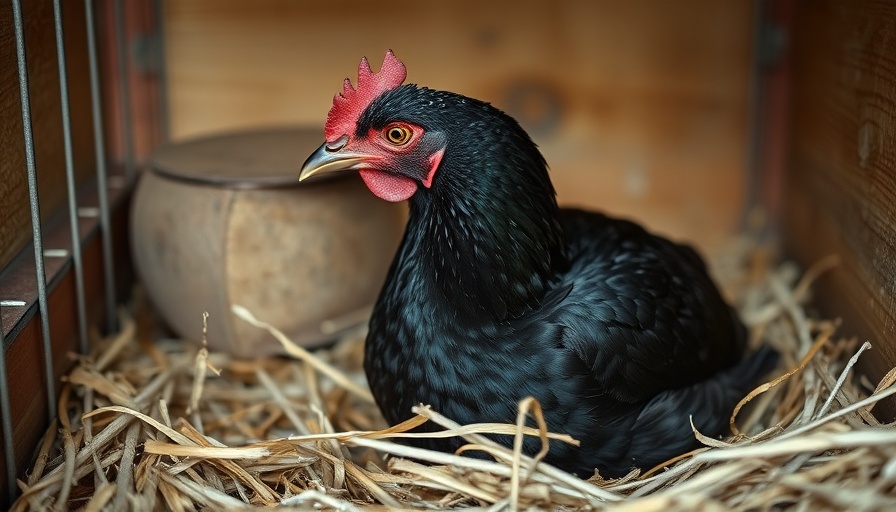
Understanding the Factors Behind Hen Egg Production
The art of poultry management can occasionally become a frustrating endeavor when egg production suddenly declines. Factors influencing a hen’s egg-laying ability are multi-faceted, each requiring careful consideration. Light exposure is one of the most significant contributors to egg production. Hens require about 14-16 hours of light daily to trigger the laying process. With shorter days in winter, decreasing light can understandably halt egg production.
Nutrition: The Foundation of Healthy Layers
Another critical aspect to consider is the hen's nutrition. Hens need a balanced diet rich in protein, vitamins, and minerals to produce eggs consistently. Any lapse in dietary quality could impact their laying performance. Moreover, stress stemming from overcrowding or environmental changes can also lead to a drop in egg production. Managers should regularly assess their flocks' diets and the living conditions to maintain health and productivity.
The Impact of Seasonal Changes
During winter months, hens may also enter a natural molting phase where they shed old feathers in preparation for new growth, temporarily reducing egg production. It's a normal process but requires proper management to ensure hens are not overly stressed. Adjusting their care routine, including dietary adjustments and lighting, can support them through this time.
Practical Solutions for Egg Production Problems
Identifying and acting upon these factors is vital for any poultry operation aiming for productivity. Utilizing artificial lighting solutions can help extend daylight hours and encourage laying. Furthermore, a diet rich in calcium and other necessary nutrients can enhance their overall reproductive health. Monitoring these aspects not only helps in maintaining egg production but contributes to the overall welfare of the hens.
Looking Ahead: Steps to Improve Production
Ultimately, awareness and responsiveness to these challenges can lead to more fruitful egg production. Frequent assessments and adaptations to the flock's management can ensure optimal health and productivity, critical for staying competitive in the poultry industry. Professionals committed to adhering to high welfare standards will foster an environment where hens thrive, ultimately leading to consistent egg production and business success.
 Add Row
Add Row  Add Element
Add Element 



 Add Row
Add Row  Add
Add 
Write A Comment